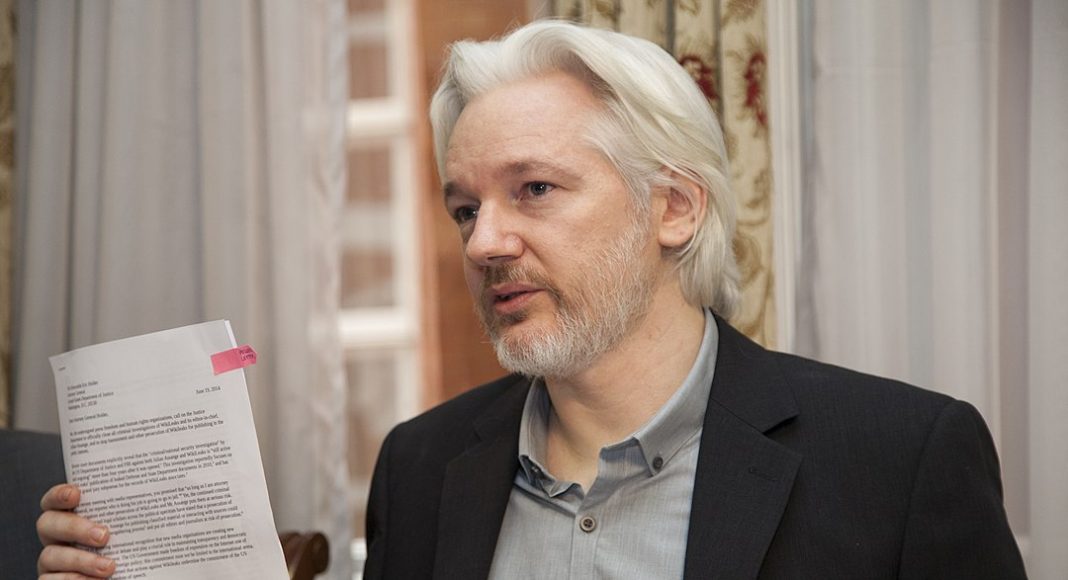Julian Assange is free. On 24 June, his 14-year legal battle against extradition to the US to face charges of espionage came to an end. He had spent five years of incarceration in Britain’s Belmarsh maximum security prison and the previous seven essentially as a captive, unable to set foot outside the Ecuardian embassy in London where he had sought refuge. Julian Assange had faced this relentless persecution by the US and British states because of his principled stand against the crimes of imperialism – because the website he founded, Wikileaks, had exposed, in particular, the lies and barbarism of imperialism’s wars in Iraq and Afghanistan.
Under a plea bargain reached at the end of June between his legal team and the US Department of Justice, Assange agreed to plead guilty to a single count of conspiring to obtain and disclose classified US national defence documents. For this, the US Department of Justice would only seek a sentence of five years – time Assange had already spent in jail, meaning he would now be freed to return to his native Australia. The original 118 charges could have seen him sentenced to 175 years in jail by a US court. This is a real victory for Assange and Wikileaks, and for his thousands of supporters around the world who have ensured that he is not allowed to rot his life away in a prison cell on politically-motivated charges. However, the case continues to show how tenuous bourgeois democracy’s ‘freedom of the press’ actually is when it threatens the interests of imperialism.
On 23 June, Assange was flown by charter flight to the US-occupied Pacific islands of Northern Mariana, where he attended a federal courthouse to plead guilty to the single count agreed, conceding nothing of principle in the way he had acted, accepting only that he had broken US law. Even the US-appointed judge paid tribute to Assange’s ordeal, finally ruling ‘This ends here with me’. Outside the court, Assange’s British lawyer Jennifer Robinson reminded reporters of the dangerous precedent that has been set as the US has sought to exercise extraterritorial jurisdiction over non-US citizens without giving them constitutional free speech protection. His US lawyer, Barry Pollack, stressed the fundamental incompatability of the Espionage Act with freedom of speech, warning of the ‘chilling effect’ of treating journalism as a crime. Both said that Assange would continue to speak out against injustice.
While the Australian government of Anthony Albanese has been quick to claim credit for Assange’s release, the reality is that for the last 14 years Australia has been utterly complicit in his persecution. When Assange was first apprehended in 2010, then- Prime Minister Julia Gillard vowed to assist the US authorities and to ask Australian officials if he had violated any of Australia’s laws as well.
While leader of the opposition, Anthony Albanese promised Assange’s father that he would do what he could to get his son released if elected. However, when Albanese became prime minister in 2022, he stated that he would not publicly intervene to prevent Assange’s extradition to the US. But campaigners have ensured the case of Assange would not quietly disappear, and eventually he was forced to appeal to the US behind the scenes.
The British legal system played an active role in the persecution of Assange and colluded with the US from the beginning – none more so than the man who is now Labour prime minister. As director of Director of Public Prosecutions for the Crown Prosecution Service (CPS) between 2008 and 2013, Starmer oversaw the extradition request against Assange that was filed by Sweden in 2010. Although Swedish prosecutors eventually dropped the case against Assange, this so-called ‘human rights lawyer’ made every effort to prolong the process, making several trips to Washington, including to meet then US Attorney General Eric Holder, as the US were investigating WikiLeaks and seeking a reason to prosecute Assange. CPS documents relating to meetings Starmer had attended in Washington, as well as the Assange case, have been destroyed.
The Western media and press, particularly the The Guardian, benefited and profited from the documents that were published by WikiLeaks, but when Assange – and journalistic practices as a whole – were put on trial, they turned their backs on him, joining in the smears and lies told by the British and US governments. Once again they demonstrated that they are merely the mouthpieces of imperialism and they will never stand with those who are persecuted for exposing the crimes of governments or organisations. Assange’s conviction for obtaining and publishing documents could have further implications for journalism and there could be similar cases in the future. The battle for Julian Assange’s freedom may have been won, but the war against press censorship and the right to expose the crimes of imperialism will go on.




